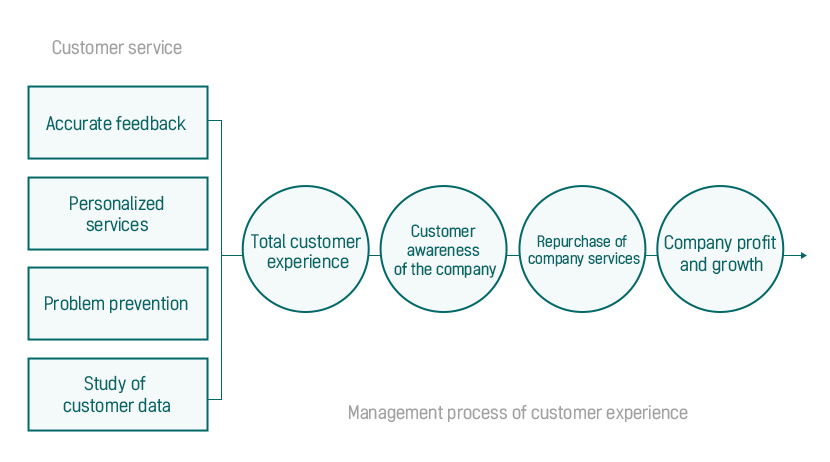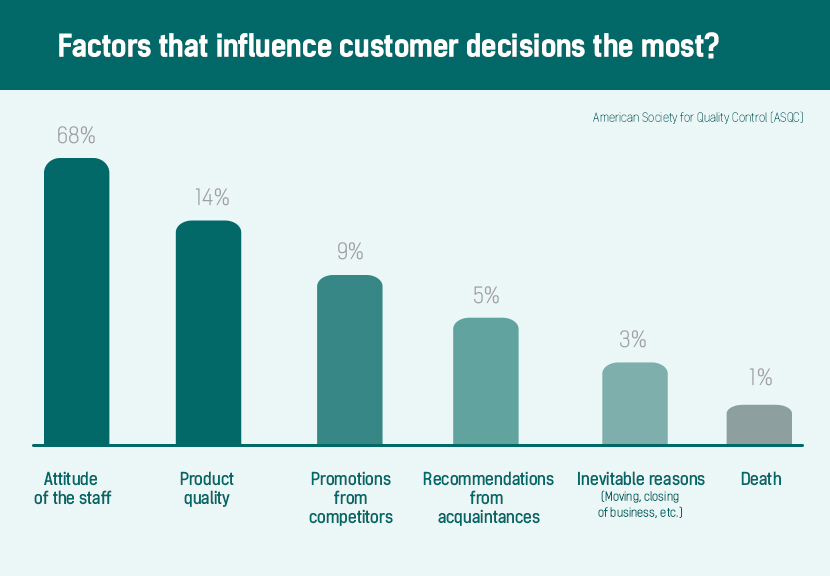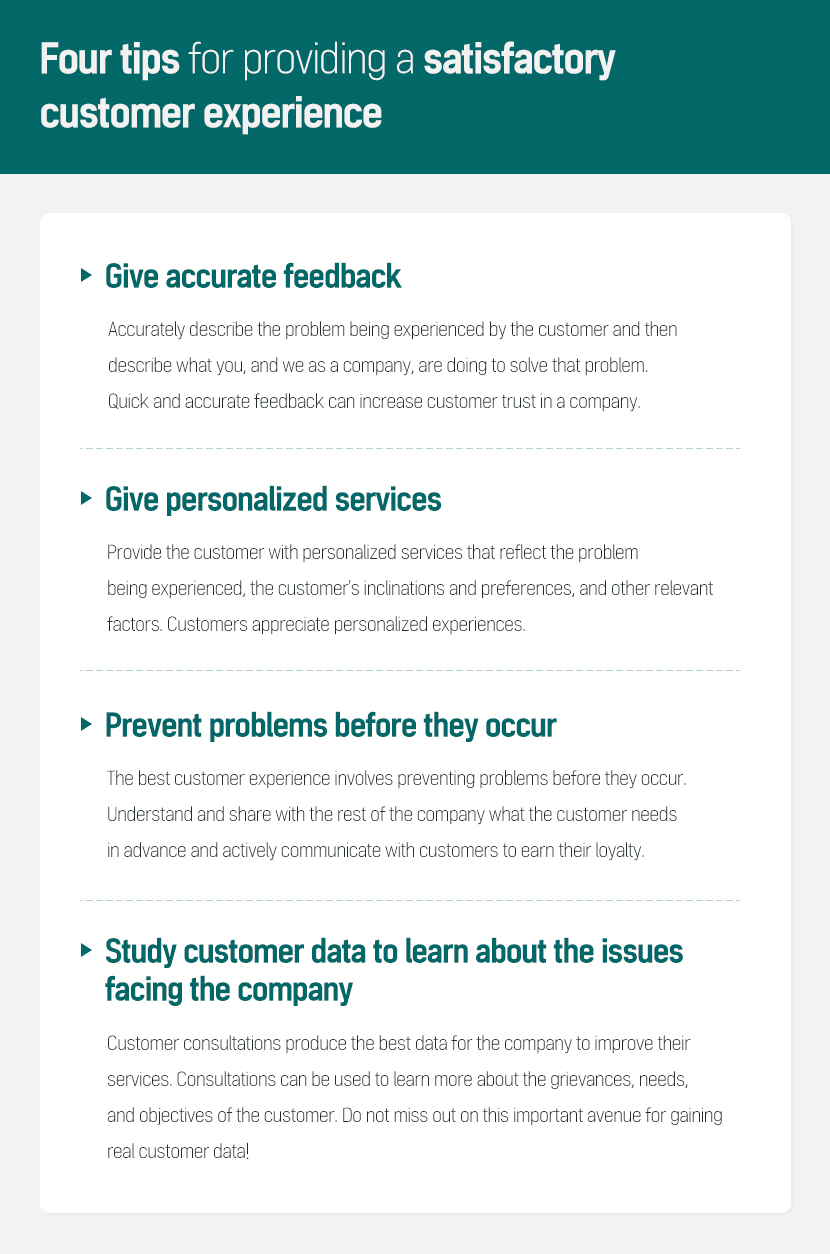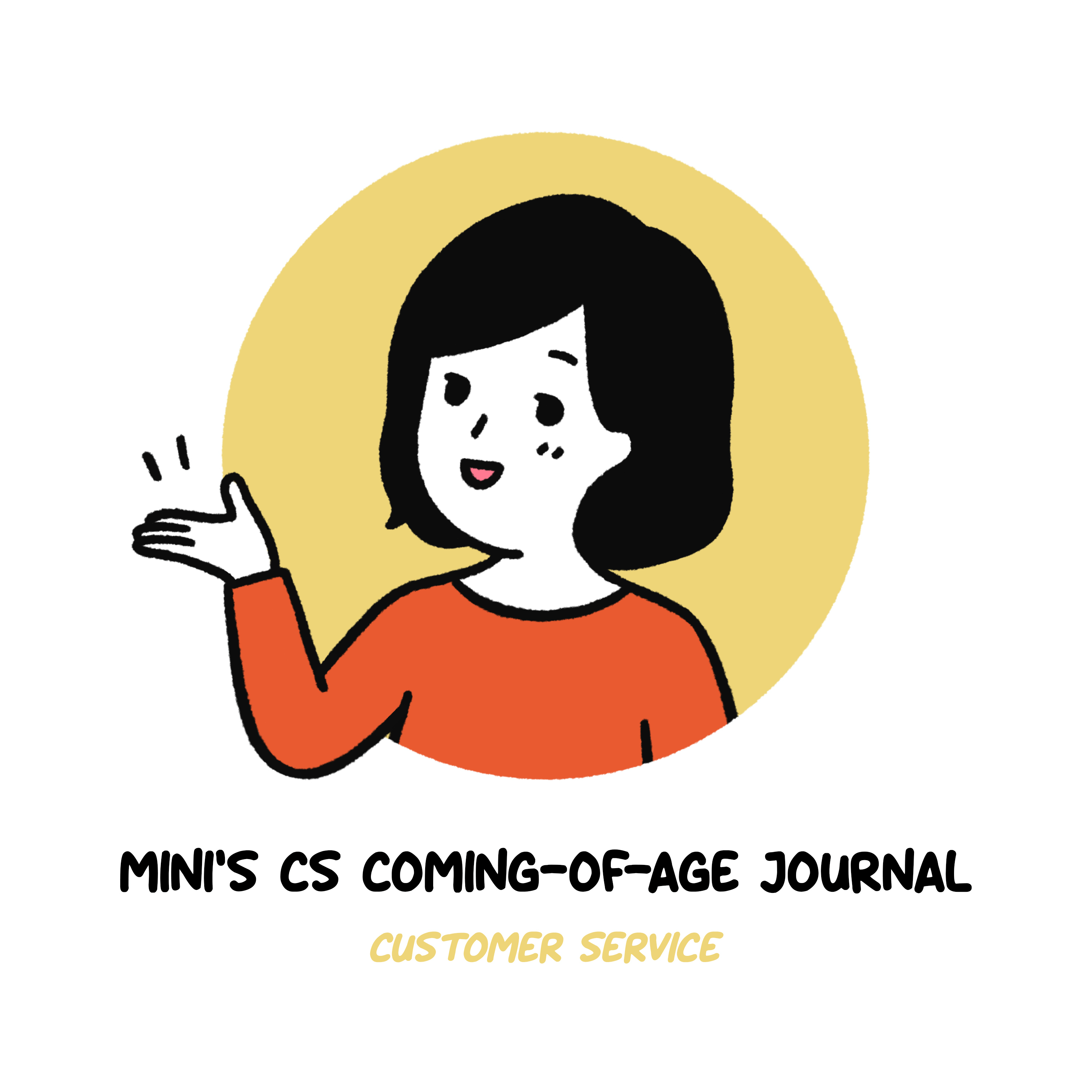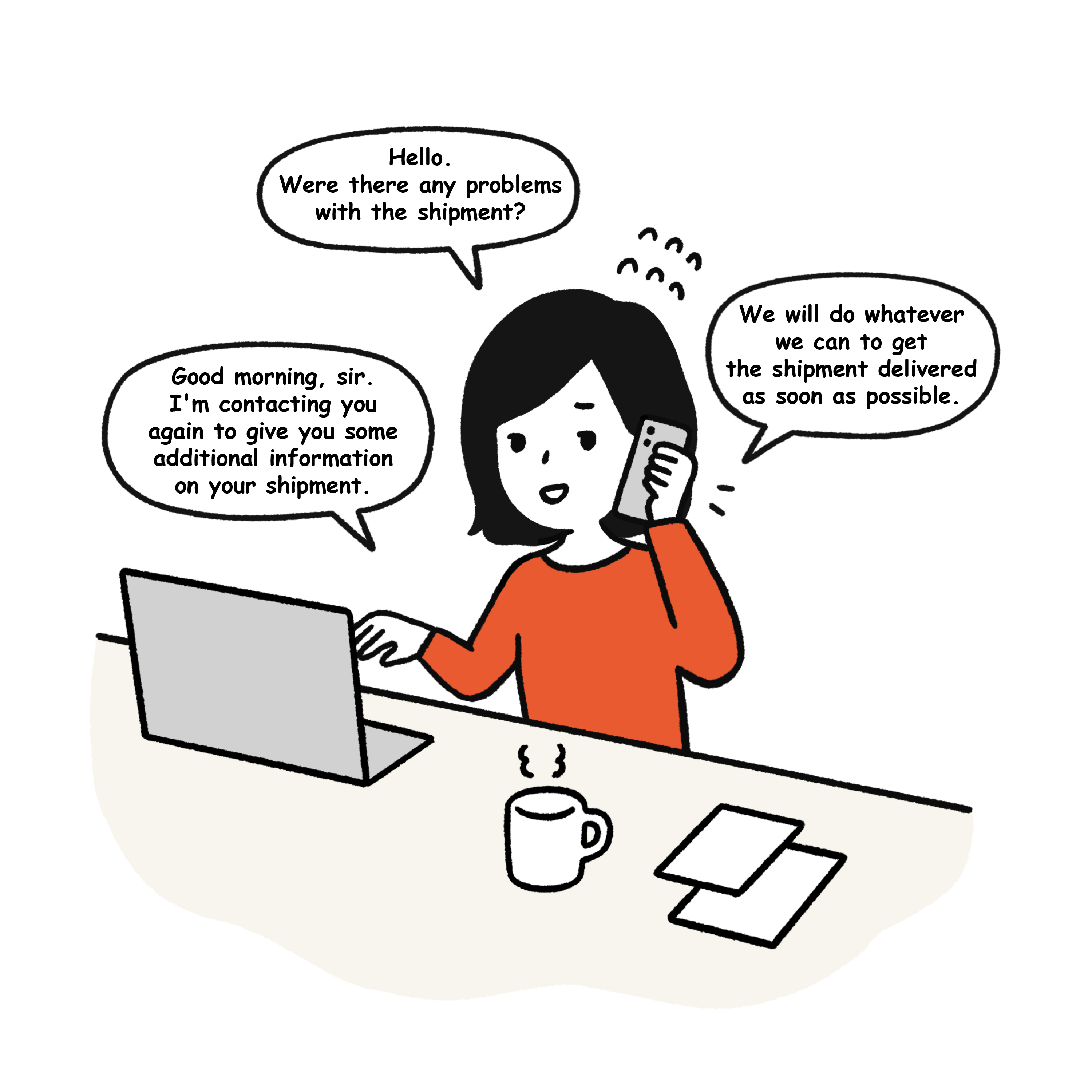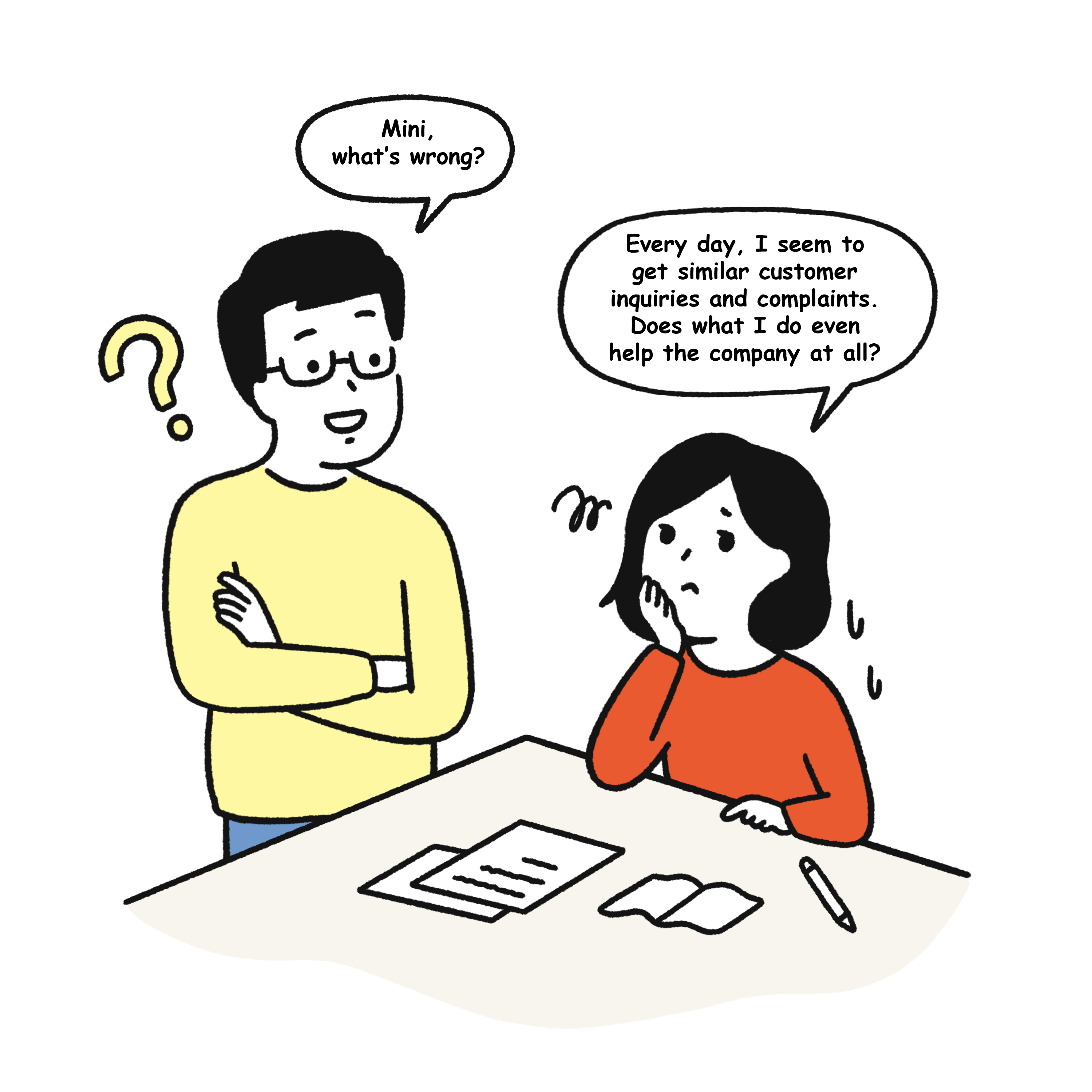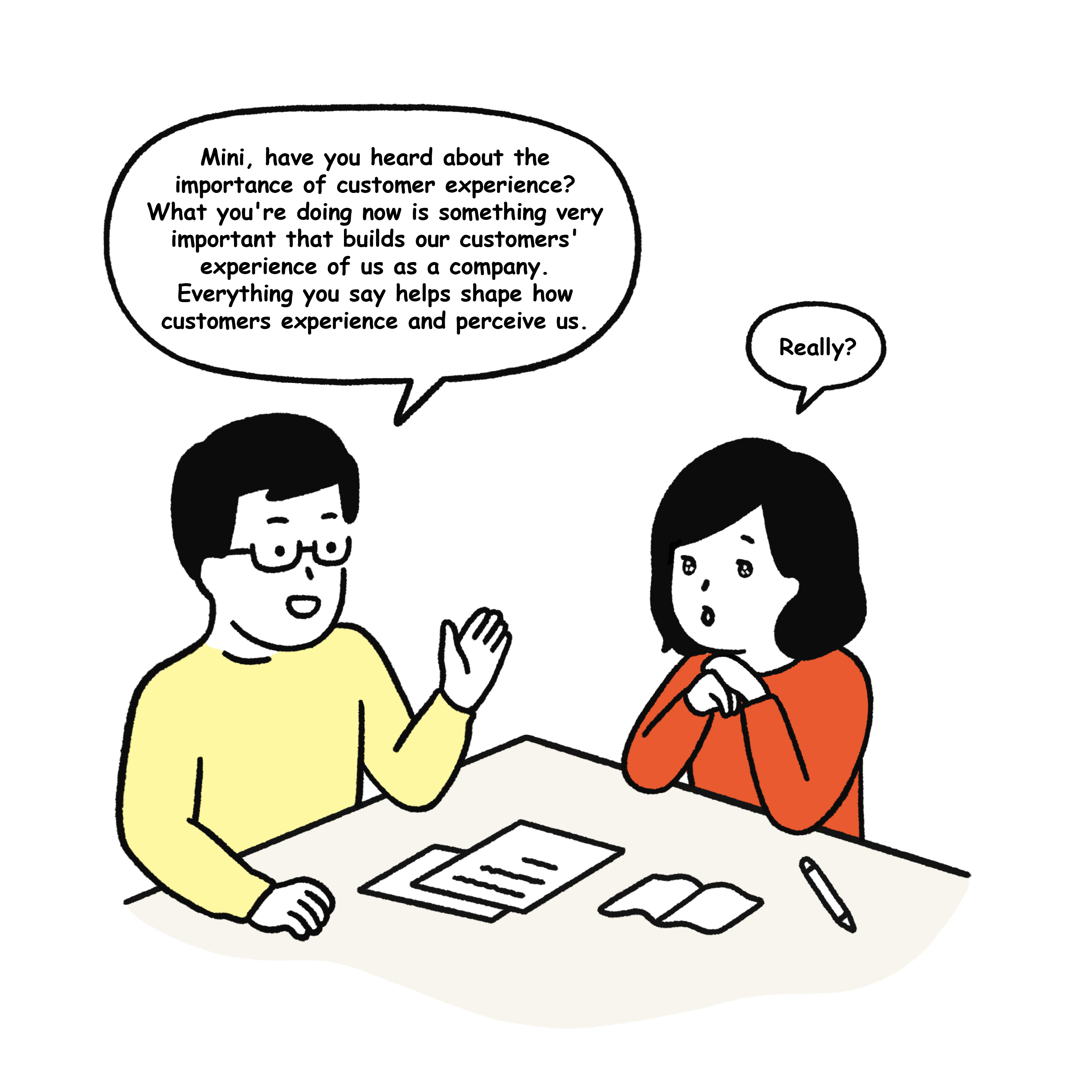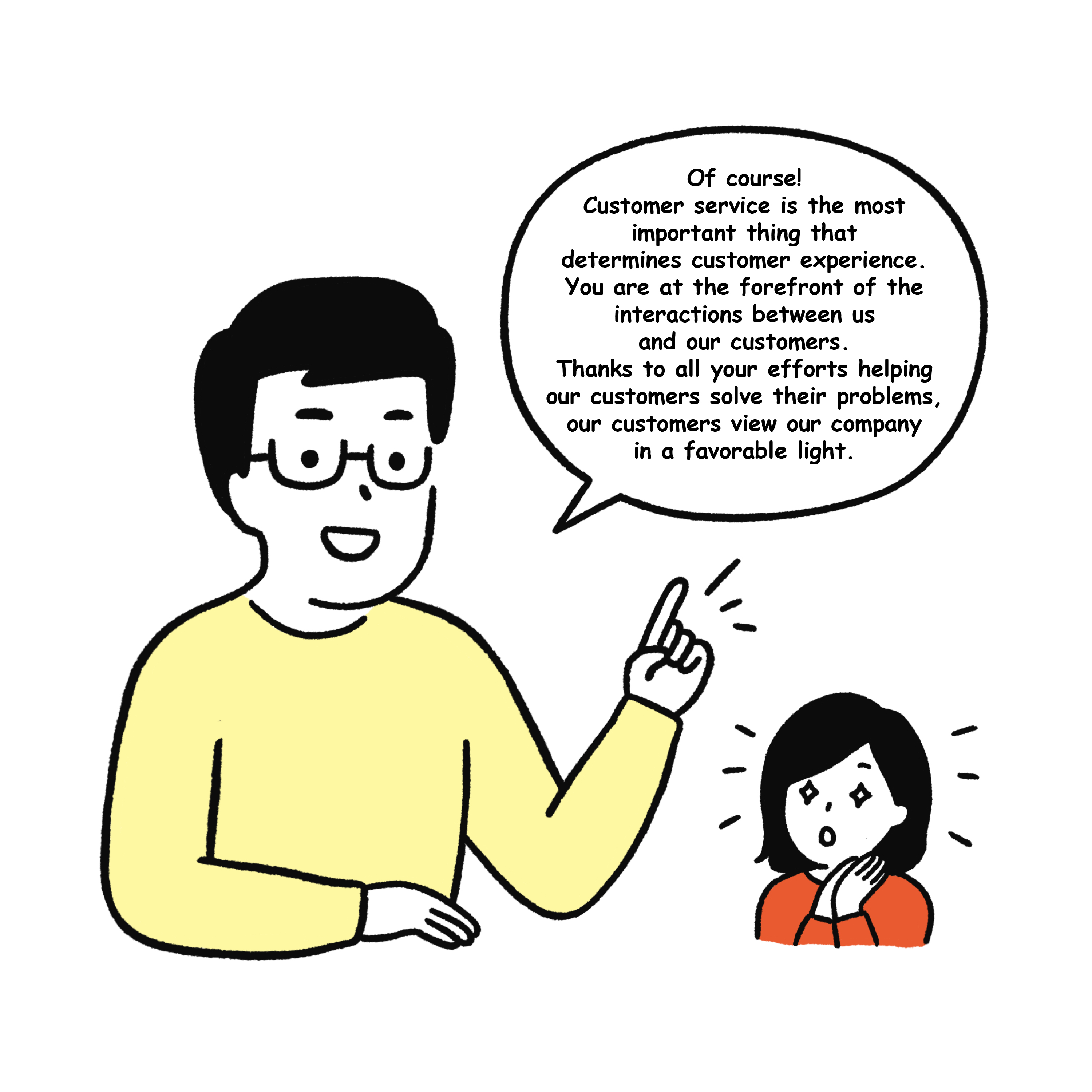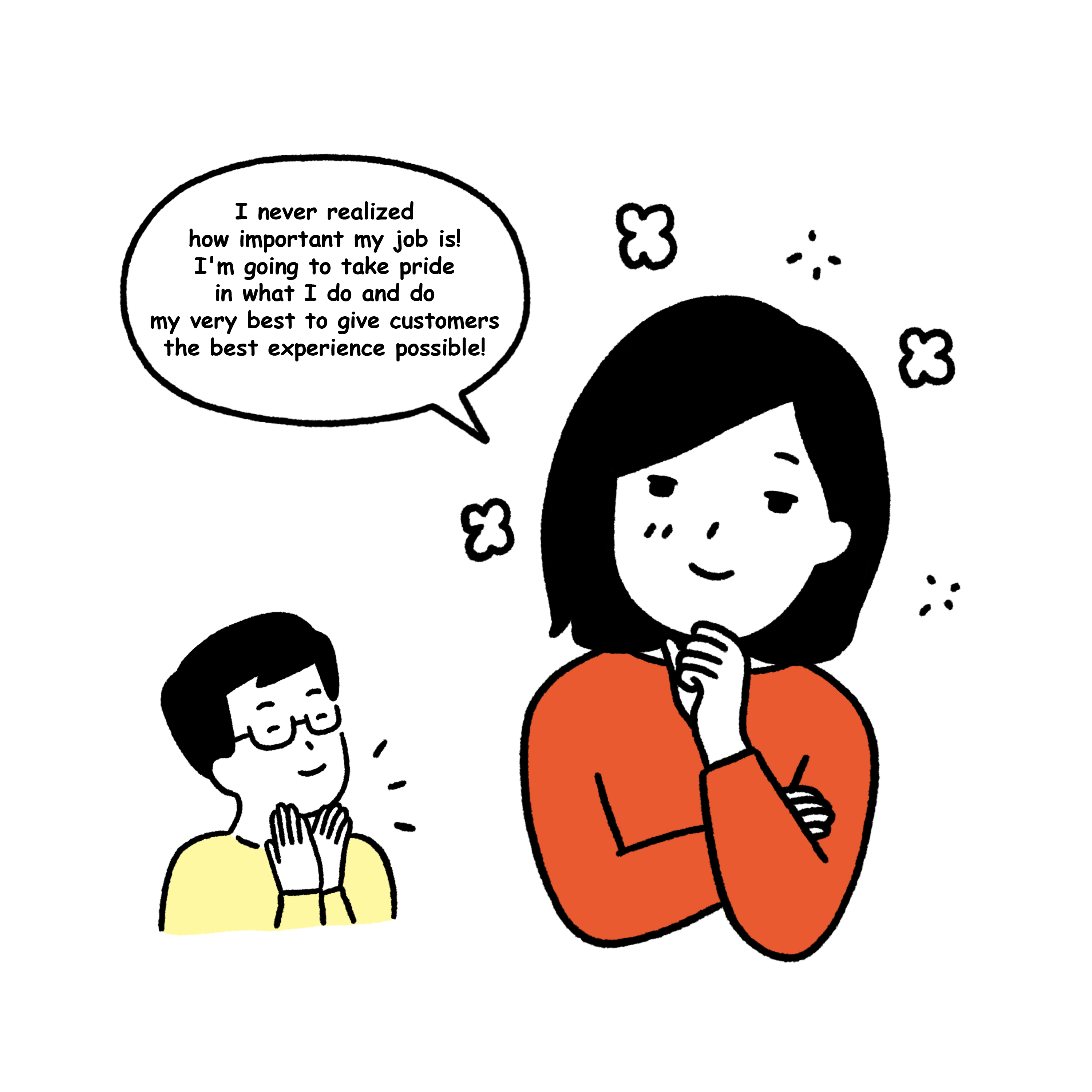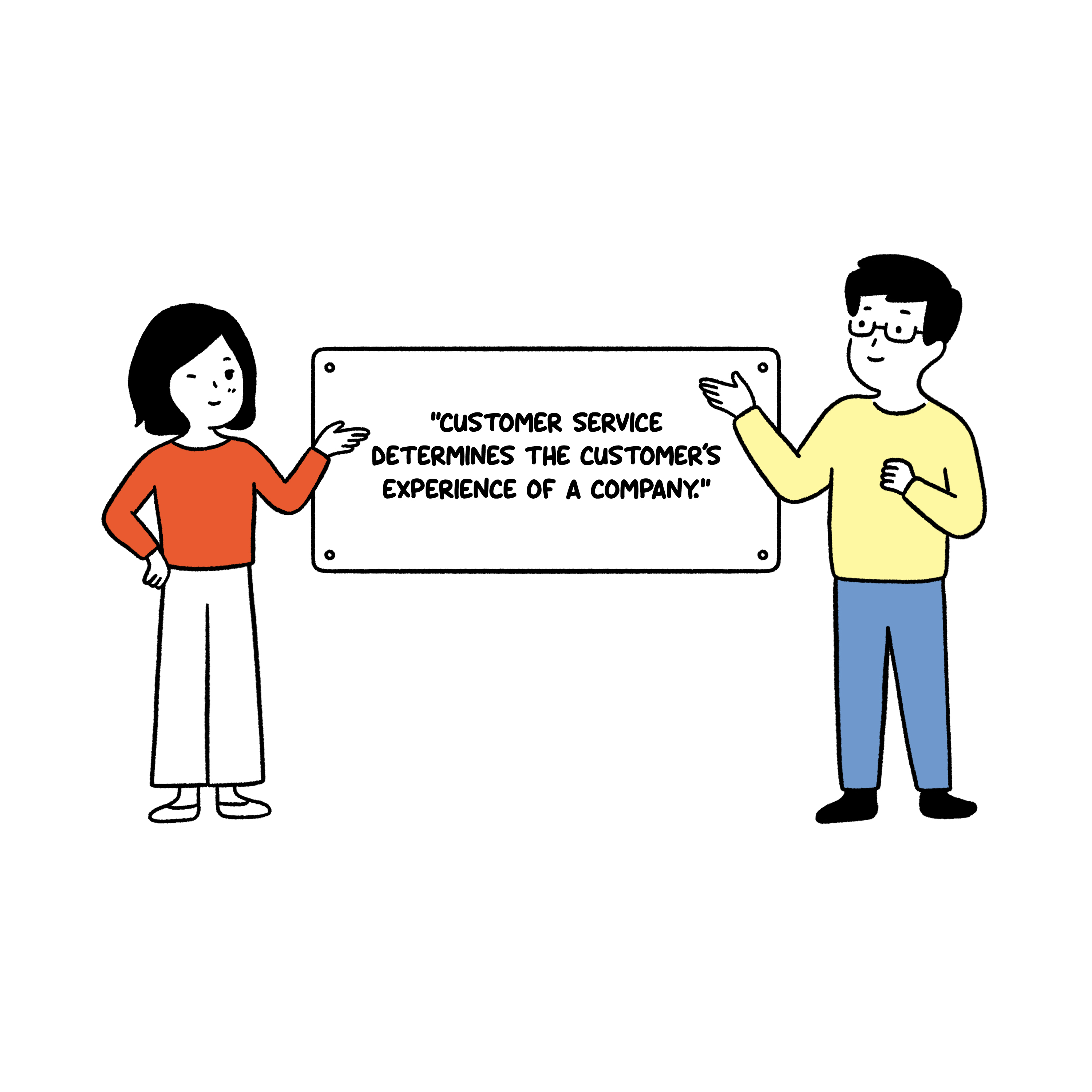“Customer service” and “customer experience.” These are the two phrases that appear most often in the customer service industry. So then, what is the difference between “customer service” and “customer experience”? If the former plays an important role in the customer’s journey, then the latter reflects all brand-customer interactions. In other words, customer service is what determines customer experience. By accurately understanding how the two concepts are intertwined, we will be able to provide customers with much more satisfactory services.
Customer service creates important memories in the customer journey
Acts of service occur at junctures where customers and businesses meet. “Customer service” can be defined as any act of customer support that takes place in the course of service quality improvement/optimization and problem solving. Customers typically experience a company’s services in the form of emails, phone calls, and text messages. In that sense, customer service is usually “reactive” in nature. A customer may voice more complaints to an unfriendly customer service representative or increase their demands if a problem remains unresolved. On the other hand, if you provide friendly services or take care of problems quickly, the customer will more than likely be content. Customers build their experience with a particular company based on these types of reactive interactions. This means that customer service is the most important element in the creation of customer experience.
Customer experience built on company-customer interactions
Customer service is synonymous with a customer’s perception of a company and is determined by a variety of interactions between the company and customer. Service quality, staff attitude, follow-up services, and other areas in which the customer and company meet all come together to produce customer experience. So then, what is the ideal customer experience? The ideal customer experience helps the customer readily achieve their desired objective. When we quickly and accurately solve a problem affecting a customer, that customer is going to have a high degree of satisfaction with their experience. As these satisfactory experiences are repeated, the customer becomes loyal to the company. Over time, a positive customer experience becomes set in stone and then transforms into an unwavering trust in the company.
Writer Editorial Department
2022.11.1


